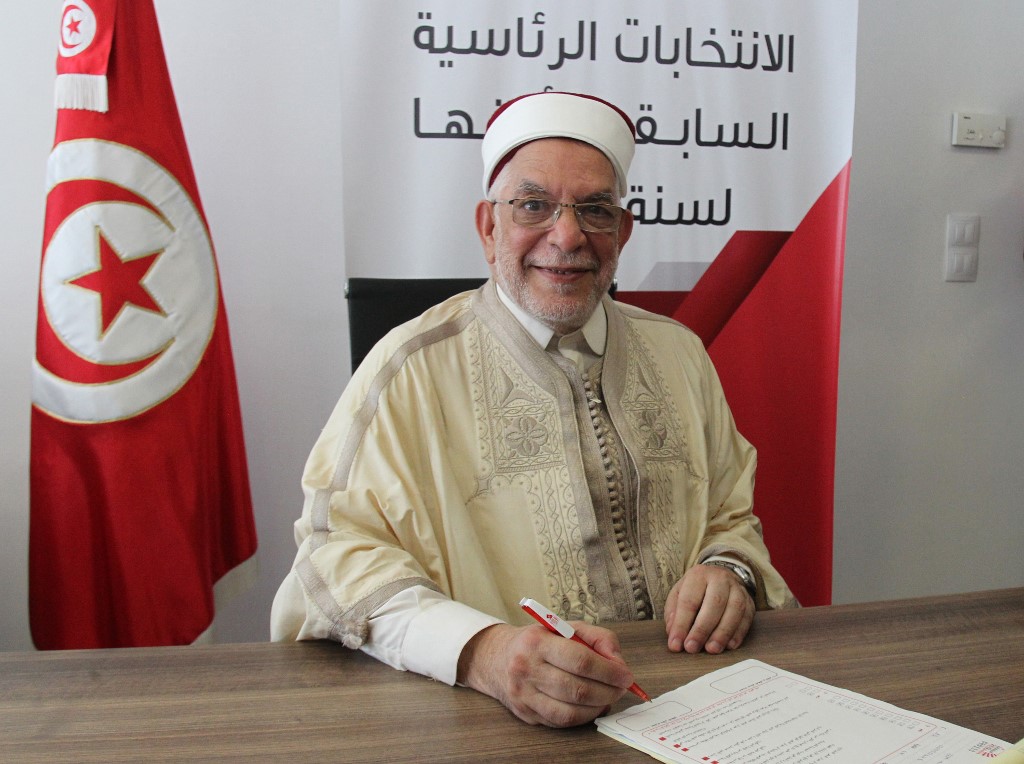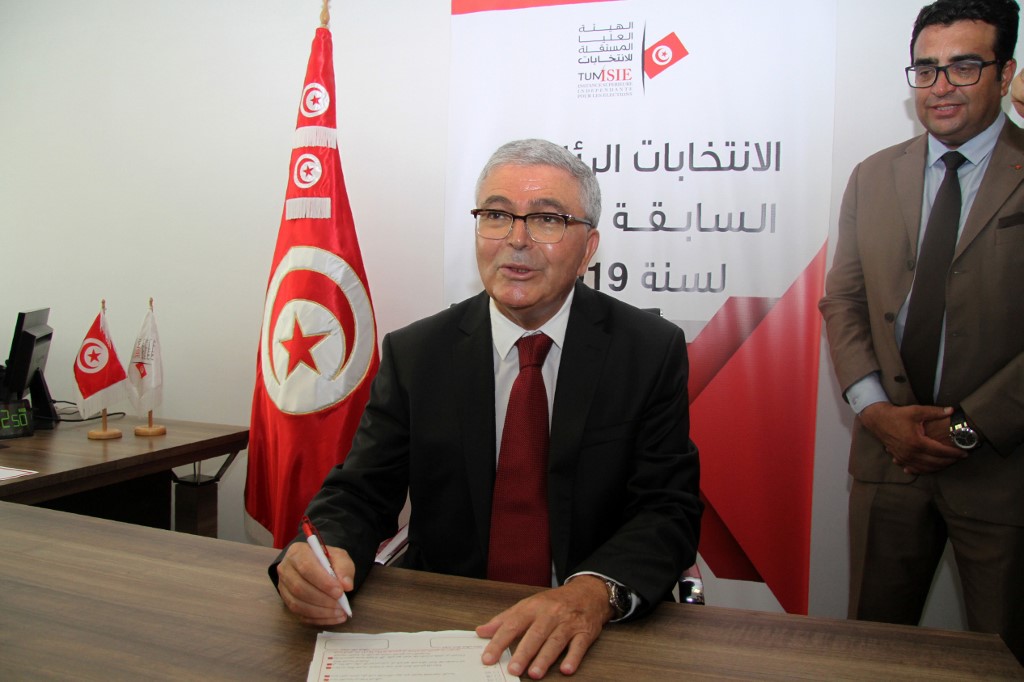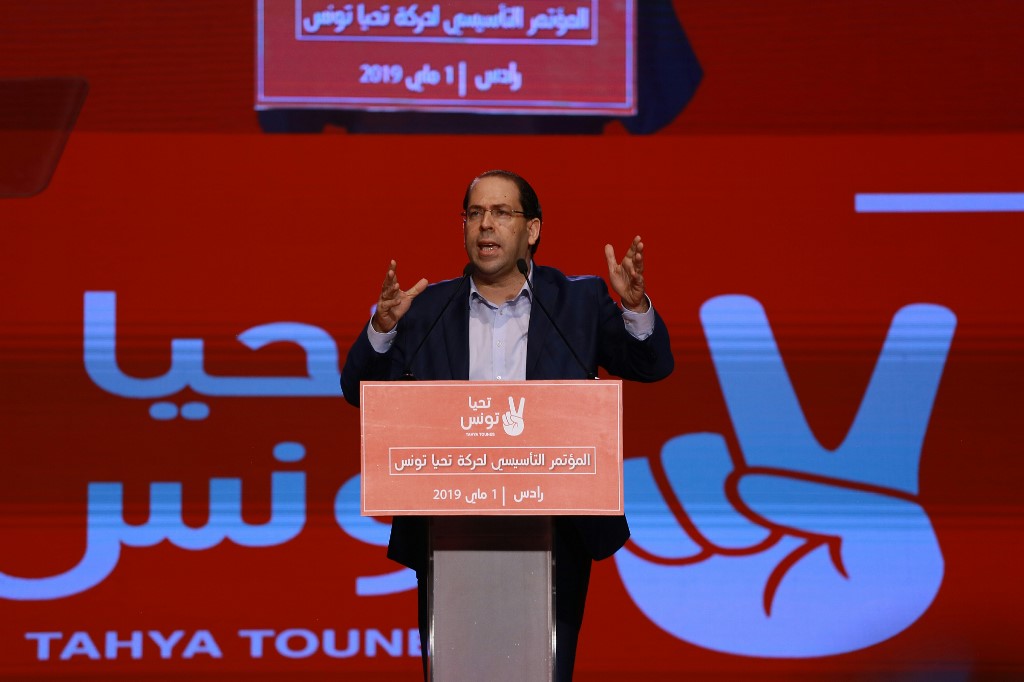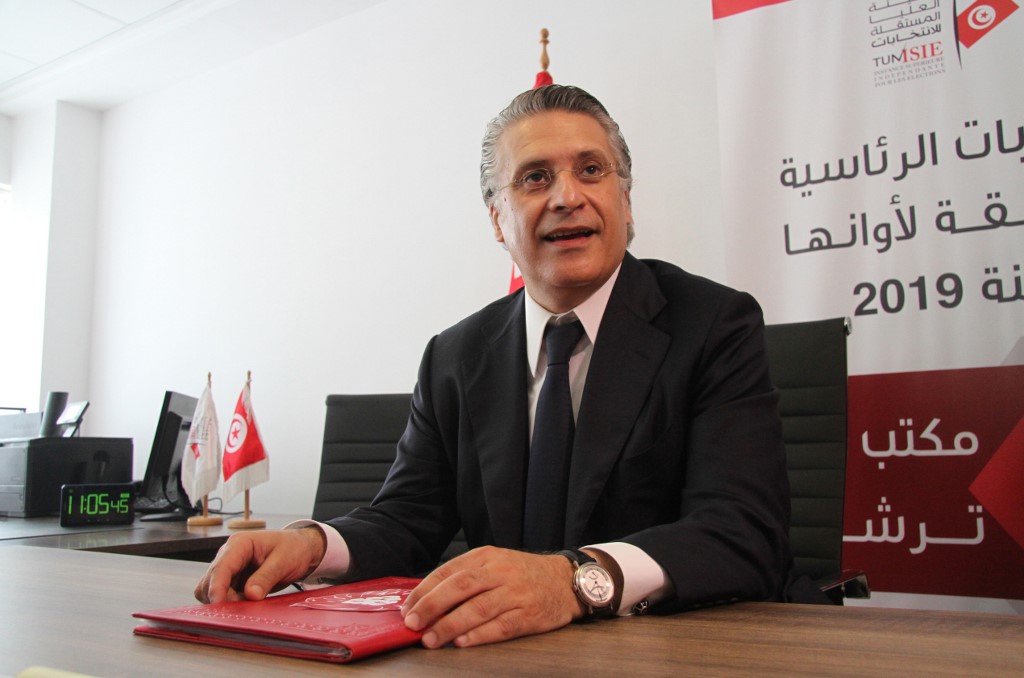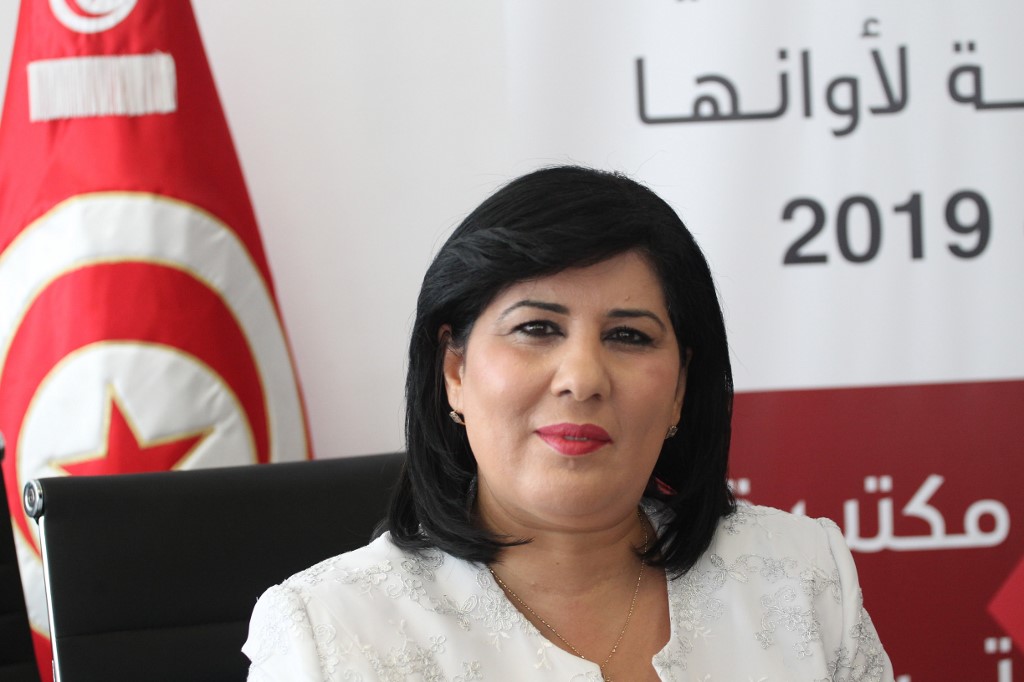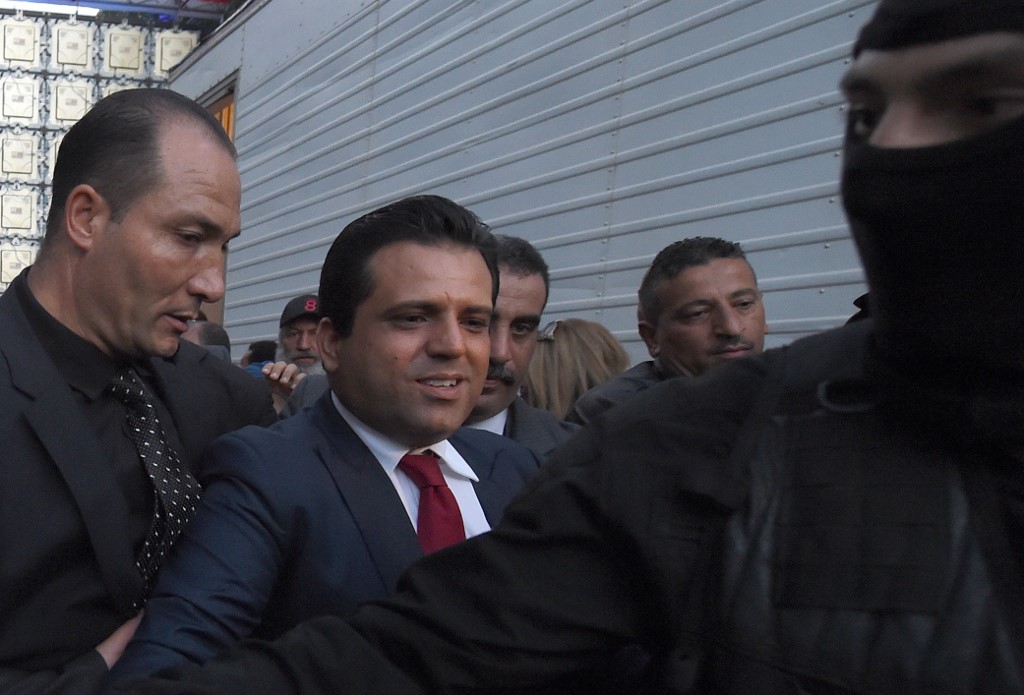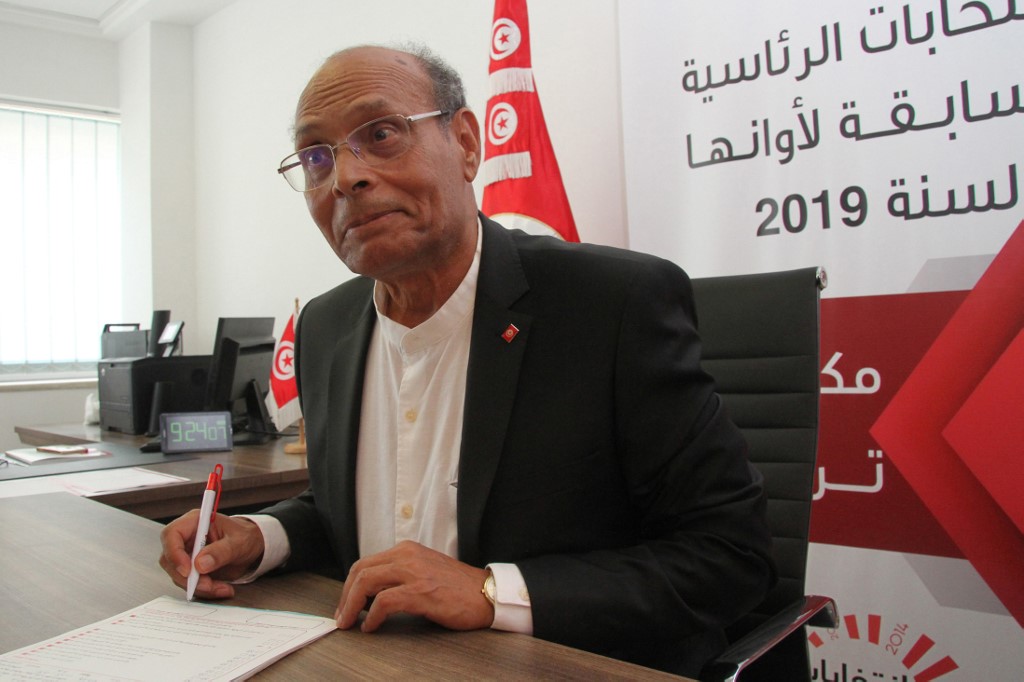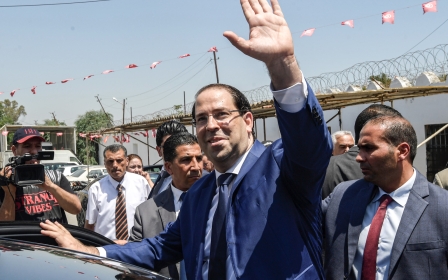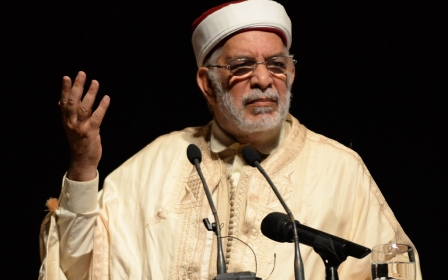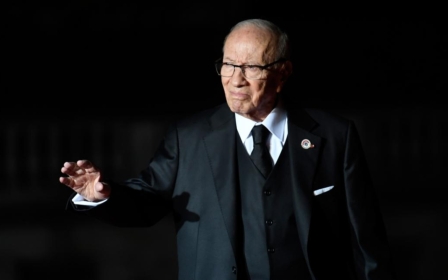Who will be Tunisia's next president? Here's the shortlist
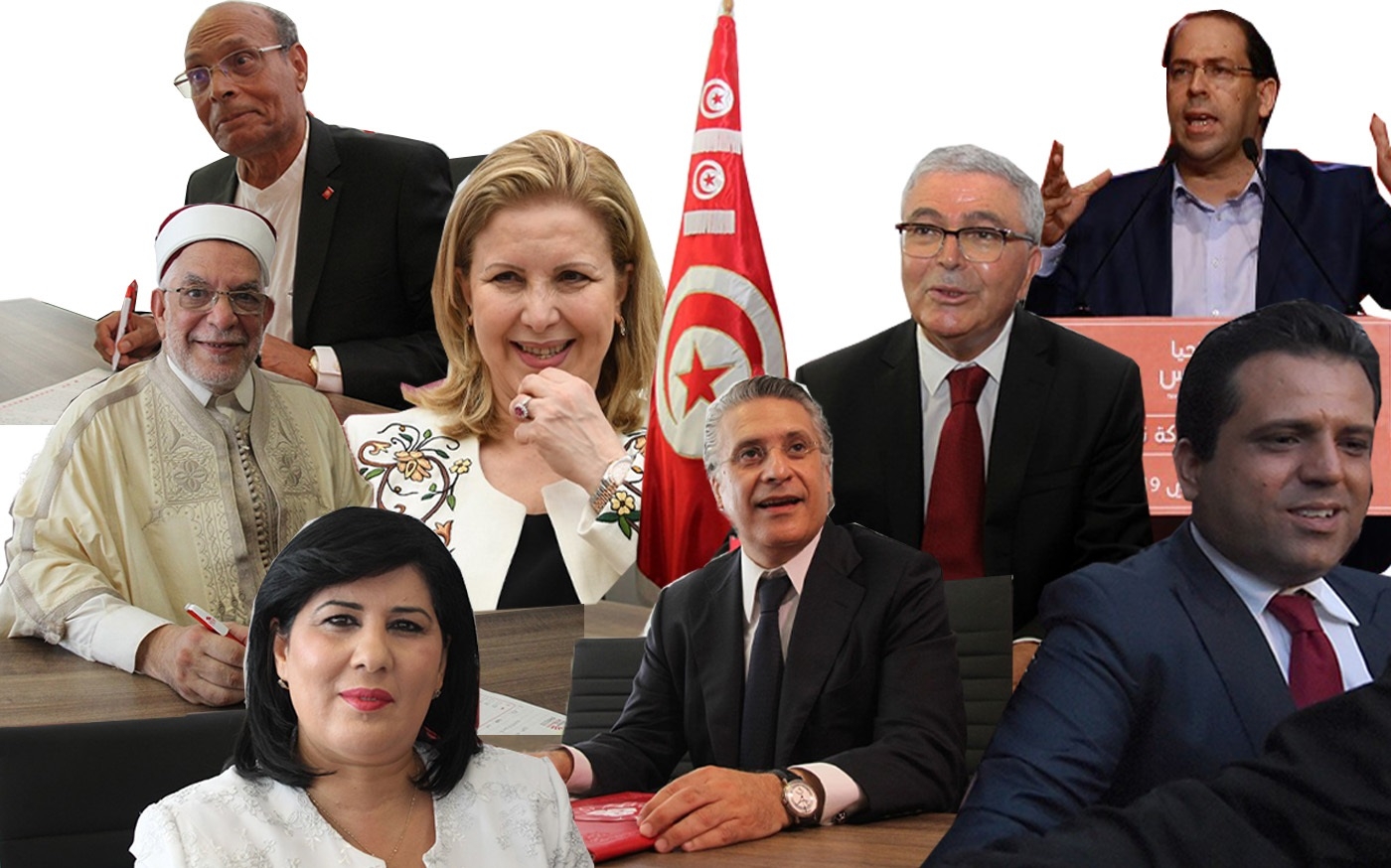
Tunisia’s electoral authority announced on Wednesday a shortlist of 26 candidates eligible to run to become the country's second democratically elected leader since the 2011 revolution.
The race had initially been scheduled for 17 November but was brought forward after the death of President Beji Caid Essebsi last month.
Nearly 100 applicants filed to participate, but only 26 have met the requirements with 71 rejected. The full list is here.
In addition to being a Tunisian citizen, a candidate must be at least 35 years old, have the signature of 10,000 citizens or 10 members of parliament or 40 elected municipal leaders, and must deposit just over $3,400 at the country's treasury.
Anis Jarbaoui, a member of Tunisia's electoral commission, said many of the contenders filed applications that were incomplete.
New MEE newsletter: Jerusalem Dispatch
Sign up to get the latest insights and analysis on Israel-Palestine, alongside Turkey Unpacked and other MEE newsletters
“There are many controversial applications, some people just wanted to be part of the electoral buzz,” he said.
Rejected candidates will have the opportunity to appeal until 31 August when a final list is announced. Campaign activities are set to run from 2 to 13 September, ahead of polls on the 15th.
The list of candidates announced on Wednesday includes two women, but the only openly gay candidate in the country's history, Mounir Baatour, has been excluded.
Here is an overview of a selection of those who are on the shortlist:
Two contenders for a divided left
MP Mongi Rahoui, 55, was the first candidate to have filed his dossier at the electoral commission headquarters.
He is supported by two left-wing parties, Al-Watad and Al-Taliaa.
His candidacy sparked controversy within his Popular Front (FP) coalition, an alliance of nine socialist political parties and independent politicians. Most of the parties in the coalition back its founder and spokesperson Hamma Hammemi instead.
Hammemi, 67, is the secretary general of the Workers Party. He came in third in the 2014 presidential election with 7.82 percent of the vote.
"Hammemi's running for office is a symbolic gesture and he is aware of that,” Aymen Zamali, a Tunisian political commentator, told Middle East Eye.
The Tunisian left, according to Zamali, has failed to build strong political parties following the revolution and are therefore unlikely to win elections.
“At the height of the Popular Front’s popularity, after the assassination of Chokri Belaid, Hammemi only got 250,000 votes," he said.
Candidates of the ruling parties
Candidates who hail from ruling parties seem to have a better chance of reaching the runoffs.
Abdelfattah Mourou is running as the first-ever presidential candidate for Tunisia's largest political party, Ennahda. The 71-year-old currently serves as the interim speaker of parliament after his predecessor, Mohamed Ennaceur, became acting president, replacing Essebsi.
Mourou was chosen after strong disagreements within the self-described Muslim Democratic party.
Prior to Essebsi's death and the rescheduling of elections, Ennahda said it intended to decide on a candidate based on the results of the parliamentary elections, originally due to be held in October.
The movement's president, Rached Ghannouchi - who is running in the parliamentary elections and likely to become the parliament's president - said Ennahda was still looking to unearth its "rare pearl" for the presidential polls.
With the perception of the presidential post as one that is merely honorary, Ennahda had plans to endorse someone from outside the party. But party members disagreed, wanting a candidate of their own.
It took Ennahda's advisory board four days to reach an agreement on Mourou's candidacy, elected by his peers with a majority of 98 votes.
Whereas many analysts believe that Mourou would easily reach the runoffs thanks to the backing of his party, others disagree.
According to political analyst Mokhtar Khalfaoui, Mourou will certainly not win the presidential election.
"I guess that's not the best choice Ennahda made," he said.
"For the general public, the ‘sheikh' and religious man's image overpowers the lawyer's and politician's one. But apparently, this is the best the movement has for this position."
Abdelkarim Zbidi, 69, the incumbent defence minister who is seen as a close ally of the late Essebsi, will run for Nidaa Tounes.
"He can win if he succeeds in bringing together democrats, liberals and leftists, but above all because he is independent," said Zamali.
Zbidi "can bring balance to the political scene, which at this moment is favourable to the Islamists", he said.
However, some have described the press briefing he gave after submitting his candidacy as a failure after two of his advisors told journalists to “hush” during a press conference.
"The man known for his integrity, honesty and patriotism does not have good communication skills when dealing with the media,” said analyst Mokhtar Khalfaoui.
“The impression he left in his first media appearance was not great. He can make it to the second round if he avoids communication mistakes, runs a good campaign and survives the TV debates with other presidential contenders."
Youssef Chahed, 43, the current head of government, only revealed his candidacy at the last minute.
During a meeting of his newly founded party Tahya Tounes, he said he wanted his candidacy to be "a rupture with the system that now threatens Tunisia, the outdated laws system, the outdated mindsets and attitudes system. I myself had to endure it for three years."
He added: "I want to continue Habib Bourguiba's vision for the country, with a focus on the state, education, health, women and the administration."
Backed by his party, which is now the second-largest party in parliament, Chahed was able to secure 30 signatures from MPs.
The then forty-year-old agricultural engineer was appointed the head of government by Essebsi in August 2016. However, disagreements with Nidaa Tounes prompted him to create Tahya Tounes three months ago.
Chahed had been urged to resign if he was considering running for president, although there is no law prohibiting him from running while remaining in his position as head of government.
However, his critics, who call for fair and equal treatment for all candidates, say Chahed is using his position and the state's resources for his election campaign.
"Those who hold a governmental office are not legally required to resign. But by the morals of democratic societies, quitting is a spontaneous move in order to make time for the election campaign," said Anis Jarboui of the electoral commission.
Controversial candidates
Nabil Karoui, the 55-year-old leader of the Qalb Tounes party, is a controversial contender but has been a front-runner in opinion polls.
Karoui, along with his brother, is currently being prosecuted on charges of tax evasion and money laundering. Both are banned from travelling and their assets have been frozen.
He was also affected by an amendment to the electoral law which, among other restrictions, moved to ban candidates who own a charity from running to prevent foreign funding from influencing the vote.
The amendment was passed by parliament but never entered into force because it was not signed by Essebsi before his death.
Karoui is facing accusations of campaigning through his charity Khalil Tounes and promoting himself on his own TV channel, Nessma.
Abir Moussi, 44, is the president of the Free Destourian party (PDL) and former deputy secretary general of the Democratic Constitutional Rally (RCD), the party of ousted president Zine el-Abidine Ben Ali.
This prominent figure of the former government is committed to the ideals of former Tunisian President Bourguiba and is strongly opposed to the Islamists.
She has also been very critical of the electoral law reform which was expected to have excluded her from running if it had been signed into law. She leads the PDL list in the Tunis 2 constituency for the legislative elections.
Controversial businessman Slim Riahi, 47, submitted his candidacy from abroad to avoid an arrest warrant in Tunisia.
Riahi has been abroad since January 2019 after a court found him guilty of corruption.
He leads Al-Watan Al-Jadid's list in the France 1 district for legislative elections.
"There are many problematic issues related to Riahi's candidacy. However, every Tunisian has the right to run and it is up to [the electoral commission] to decide," political journalist Aymen Zamali told MEE.
"This is a young democracy. The electoral law is developing and so is the political landscape."
Moncef Marzouki's come-back
Moncef Marzouki, president of Al-Irada party, was the first president of the Tunisian Republic in 2011 after Ben Ali's overthrow.
He was elected by MPs before the country's new constitution was drafted.
In 2014, with the support of Ennahda, Marzouki reached the second round of the presidential election with 33.43 percent of the vote, but then lost to Essebsi.
Others on the shortlist include Mohamed Abbou ( Democratic Current), Lotfi Mraihi (Patriotic Republican Union), Mohsen Marzouk (Machrouu Tounes) and Salma Elloumi (Amal Tounes).
"There are several presidential contenders of the same political or ideological background, which reflects the failure of these parties to unite because of personal conflicts that in most cases involve narcissistic tendencies," said Khalfaoui.
According to Zamali, the political game in 2014 was much more straightforward as the presidential election was between Islamists and modernist “Bourguibians”. Today, he said, it is hard to make predictions about who will win.
"The democrats are divided and Ennahda's popularity has declined. It is the independents who are most likely to pass," he said.
This piece has been adapted from MEE's French edition.
Middle East Eye delivers independent and unrivalled coverage and analysis of the Middle East, North Africa and beyond. To learn more about republishing this content and the associated fees, please fill out this form. More about MEE can be found here.


